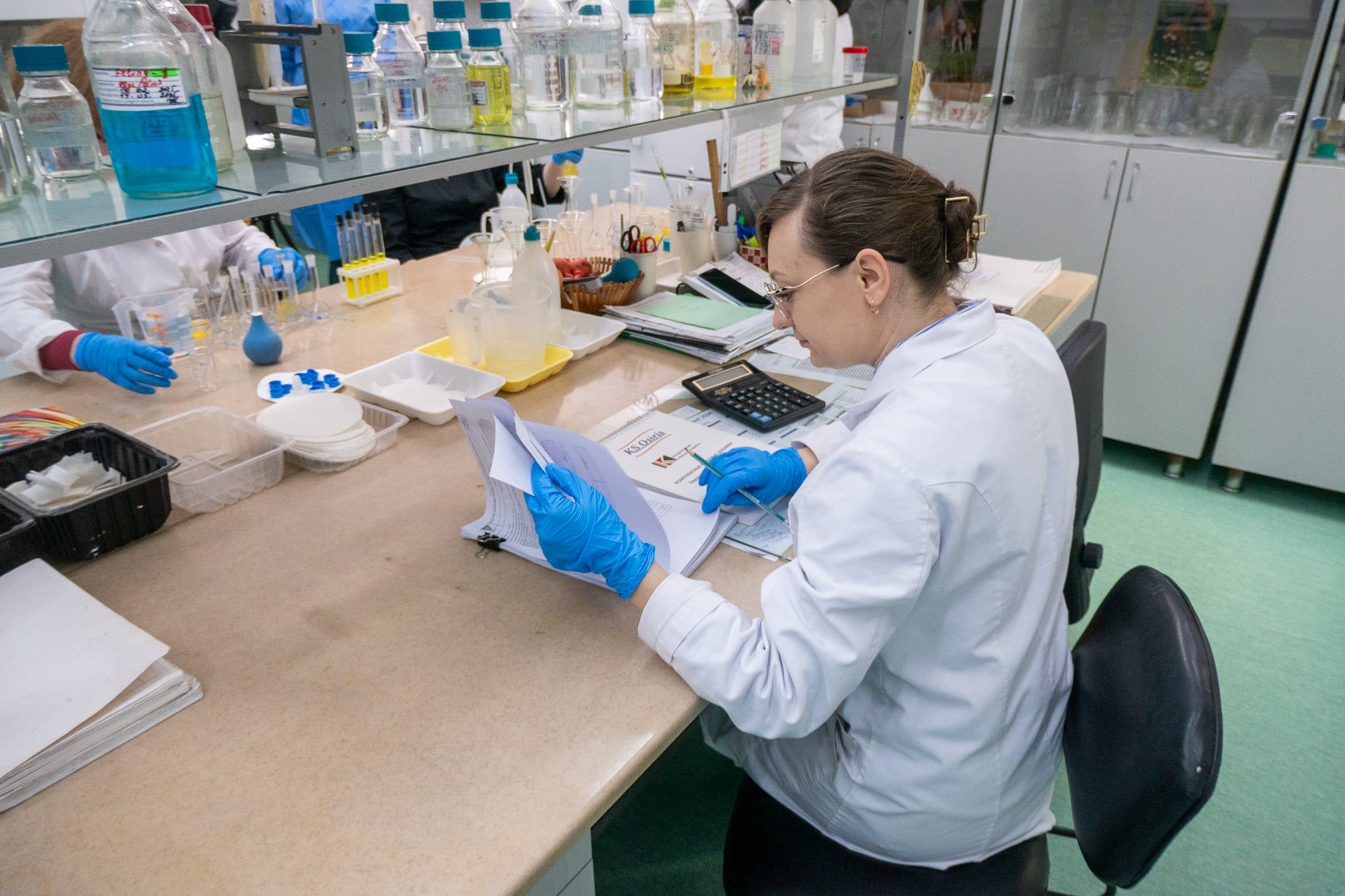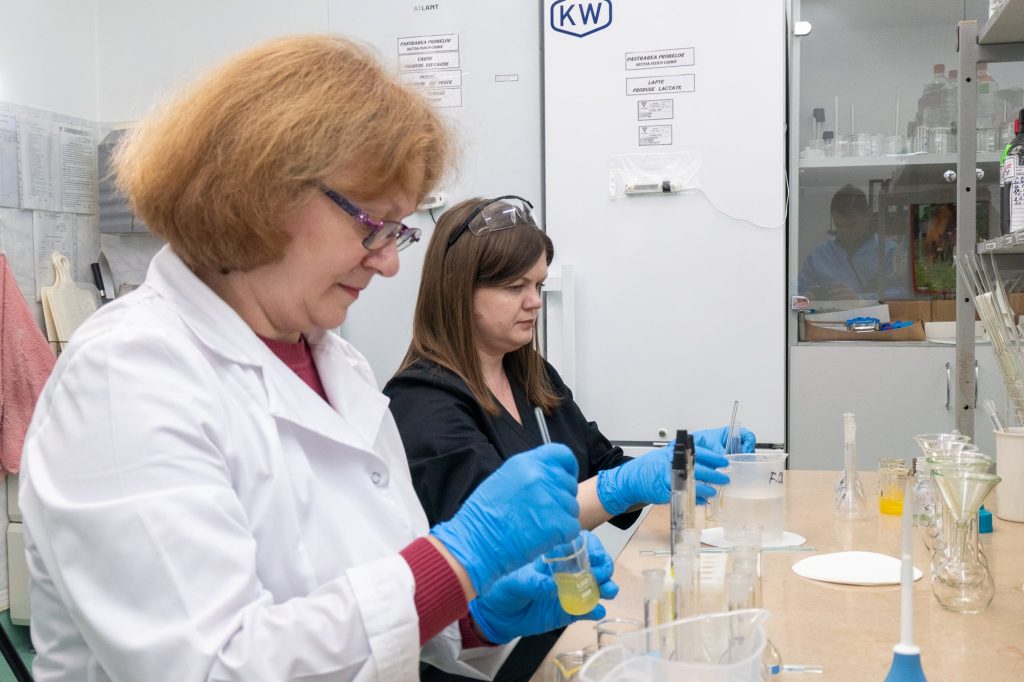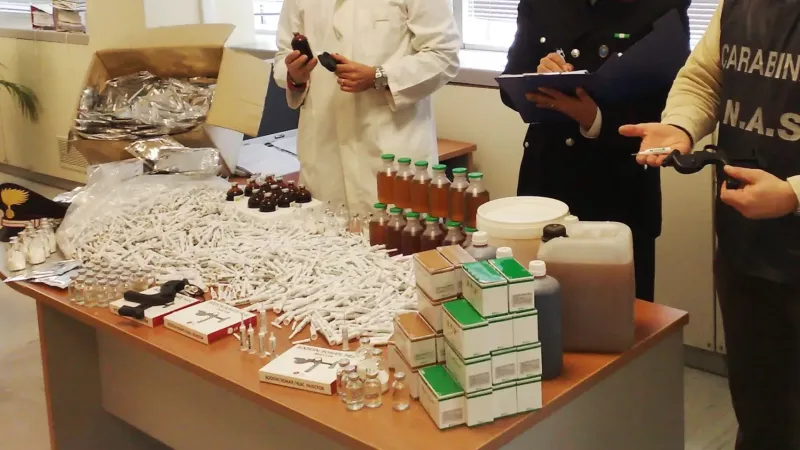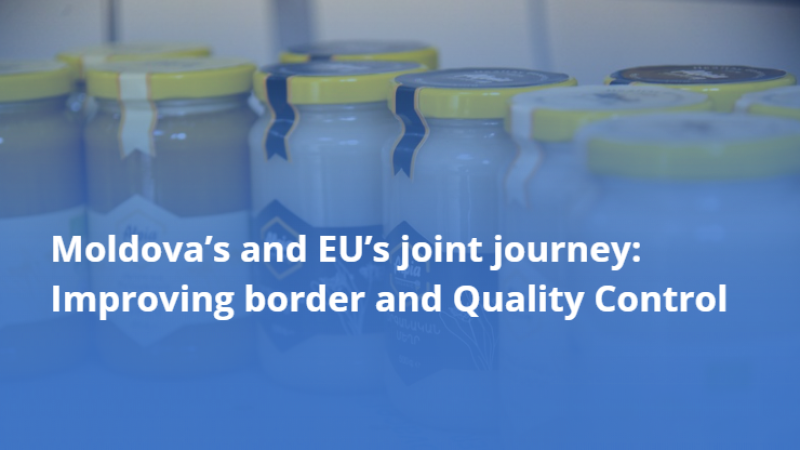
Moldova moves forward on the path to EU Integration with stricter food safety rules
The Republic of Moldova is making steady progress toward joining the European Union, including by improving the way food products are monitored before they reach consumers’ tables.
In 2024, a key piece of legislation was adopted – Law No. 82/2024 ‘official control in the agrifood sphere’ – which sets clear and harmonized rules for the inspection of food products, especially those of animal origin. The law aims both to protect public health and to support local producers in adapting to European standards.

To help implement these rules, the EU-funded project “Improving the Standards Compliance through Increased National Capacities for Residue Monitoring,” implemented by UNIDO, has recently provided support to the Moldova’s Ministry of Agriculture and Food Industry (MAFI) through the development of a new legislative package. These documents will help turn reforms into action and focus on areas such as slaughterhouse operations, meat and fish production, inspection of dairy and mollusc products (e.g. clams, mussels, oysters, snails), and the use of pharmaceutical substances in livestock. The new measures aim to boost transparency, clarify responsibilities for those involved, and ultimately provide greater food safety for consumers.
Clearer Inspections, Safer Food
One of the legislative initiatives sets detailed rules for inspections in slaughterhouses and meat and fish processing facilities. It includes requirements for personnel training and specific regulations for wild game and mollusc harvesting.
A second initiative focuses on how products of animal origin—such as fresh meat, milk, fish, and colostrum—are inspected before they can reach the market. It defines inspection frequency, traceability steps, labelling rules, and auditing procedures for production areas.
A third Government Decision addresses the control of pharmaceutical substances used in animals intended for food production. It outlines intervention measures in cases of suspected or confirmed misuse of veterinary drugs, procedures for the official detention of products, and steps for launching investigations. The document also introduces mechanisms for monitoring the use of veterinary antimicrobials, especially where food safety might be at risk.
Additional Support for ANSA: Four New Regulations for More Effective Controls
To strengthen the capacity of the National Food Safety Agency (ANSA) and ensure more consistent application of European food safety legislation, UNIDO experts also contributed to the development of four technical regulations. These aim to improve how the use of veterinary medicines and feed additives is controlled, introducing detailed procedures for inspections, testing, and sampling of both locally produced and imported products.
The new regulations also provide a clear framework for how national control plans should be developed, indicating when and where samples should be collected, which products should be tested, and how to assess the associated risks. In addition, a special mechanism allows certain laboratories to be officially designated even if they do not meet all technical requirements for every method used—an important solution for complex areas such as plant health, food additives, and materials that get in contact with food. Together, these regulations will equip ANSA with stronger tools to conduct more thorough and effective inspections, contributing to safer food for everyone.
Benefits for People and the Economy
“Taken together, the two legislative projects developed by mid-2025—alongside Law No. 82/2024—create a strong building block for a modern and coherent legal framework for the agri-food sector. For consumers, this means safer food. For producers, it means better chances of selling their goods on the European market. And for the national economy, it’s a major step toward a more modern and competitive agricultural sector”, explains Monica Maria COJANU, International Legal Expert on Official Controls, UNIDO.
With support from the European Union and in partnership with national authorities, UNIDO is a key actor in transforming Moldova’s agri-food sector, offering expert guidance and technical support for sustainable and competitive industrial development: the legislative initiatives facilitated have direct impact on public health, aim to offer stronger guarantees for the quality and safety of food products on the market, while preparing Moldova’s meat industry for export to the European Union.








